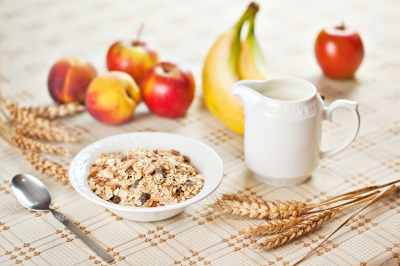 How many grams of fiber do you consume daily?
How many grams of fiber do you consume daily?
Most Americans consume half the recommended dietary intake of 25 grams (women) to 38 grams (men) of fiber daily for adults 50 years or younger. Over the age of 50, women should consume 21 grams of fiber and men 30 grams per day.
There are two types of fiber.
Soluble fiber turns to a gel during digestion. Sources of soluble fiber include oats, oatmeal, nuts, seeds, beans, peas, lentils, and some fruits and vegetables (i.e. oranges, apples, carrots).
Insoluble fiber is not digested. It adds bulk to the stool and helps food move through the stomach and intestines. Sources of insoluble fiber include vegetables, whole-grains, and wheat bran.
A diet high in fiber is connected to many health benefits.
- Lower cholesterol levels
Boosting fiber intake from whole-grain products leads to a slower build-up of arterial plaque. Studies also find soluble fiber to protect against atherosclerosis, which is this build-up of plaque in the arterial walls.
Dietary fiber also binds to LDL cholesterol during digestion, resulting in lower LDL cholesterol levels, without decreasing HDL cholesterol levels.
Continue reading


 Exercise is beneficial for everyone, even those who have heart disease or have had a heart attack. Regular exercise can strengthen your heart, promote quicker recovery, and reduce dependence on medication.
Exercise is beneficial for everyone, even those who have heart disease or have had a heart attack. Regular exercise can strengthen your heart, promote quicker recovery, and reduce dependence on medication. When you are stressed your body releases stress hormones to prepare the body for “fight of flight”. This hormone release causes heart rate to increase and blood vessels to constrict. The combination leads to elevated blood pressure. With short term stress, this is a temporary rise in blood pressure that resolves itself once the stressful situation is resolved.
When you are stressed your body releases stress hormones to prepare the body for “fight of flight”. This hormone release causes heart rate to increase and blood vessels to constrict. The combination leads to elevated blood pressure. With short term stress, this is a temporary rise in blood pressure that resolves itself once the stressful situation is resolved.


